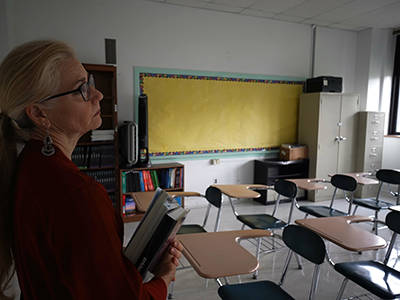Understand and Address Absenteeism with These Strategies
Watch the RecordingListen to the Podcast
During the edLeader Panel “Decreasing Absenteeism and Its Effects with Meaningful Strategies,” Brian Marques, Sr. Director of Opportunity Youth for Boston Public Schools (MA), Aspen Florence, Educational Consultant for the Utah State Board of Education, and Cecelia Leong, Vice President of Programs for Attendance Works, provided insights into leveraging Multi-Tiered Systems of Support (MTSS) and innovative approaches to understand and address chronic absenteeism and attendance barriers.
The panelists emphasized the severe consequences of absenteeism on students’ academic performance, outcomes, and overall well-being. With 14.7 million students chronically absent during the 2021-2022 academic year—a significant increase from pre-pandemic levels—the discussion focused on reversing this trend.
In Utah, where nearly 27% of students are chronically absent, Florence shared the legislative measures that have been implemented for closer monitoring and targeted interventions. The state takes a systematic approach, starting by defining chronic absenteeism and ensuring uniform communication among stakeholders (parents, educators, school administration, and students). This led to the development of standardized data-collection tools, unveiling the pivotal role of family engagement in improving attendance.
Collaborating with Panorama Education, the Utah State Board of Education then implemented surveys to identify underlying issues contributing to absenteeism. Revealing things like lack of consistent transportation, familial challenges, and beyond, the collected data guided Local Education Agencies (LEAs) in aligning absentee policies with the data so that schools can address the root causes of absenteeism instead of just treating the symptoms.
Data-collection tools, such as Panorama, helped them visualize the interconnectedness of academics and social-emotional learning with attendance records—revealing that when attendance is consistently above 90%, academics and the students’ social-emotional indicators as a whole show a positive uptick.
Following these insights, Marques shed light on Boston Public Schools, which is grappling with a 42% increase in chronic absenteeism post-pandemic. Prioritizing equity, the district aims to instill a sense of belonging for all students.
Despite a 3% decline in the absenteeism rate in the past school years, Boston Public Schools is still dealing with the fact that marginalized groups face disproportionately higher rates. Panorama empowered schools to make informed decisions based off of a robust data-collection strategy and implement targeted interventions.
Boston Public Schools implemented guidelines adaptable to each school’s unique needs, one of the key recommendations being a central attendance team to regularly analyze student-absenteeism data. This team developed strategies and interventions, emphasizing multifunctional collaboration and building relationships with parents.
Recognizing the correlation between student disconnection and absenteeism, they strategically identified staff members who connected well with students and prioritized the “human” side of education, having these staff members be the first point of contact with families.
The district also established a tiered attendance system, focusing on high-quality success plans for students more than 80% absent. In this MTSS, the attendance coordinator plays a crucial role in both data analysis and facilitating neutral, data-driven conversations with families whose children are struggling with consistent attendance.
Leong concluded the discussion, emphasizing a preventive approach as the cornerstone for effective interventions. She underscored the importance of Tier 1 prevention, emphasizing communication, clear guidelines, and fostering positive relationships. She also stressed the need for addressing biases, implementing training, and embracing practices that combat systemic racism and trauma before undertaking attendance interventions.
The edLeader Panel offered a comprehensive exploration of strategies to combat chronic absenteeism, emphasizing the significance of data-driven decision making, community engagement, and targeted interventions at various levels.
Learn more about this edWeb broadcast, Decreasing Absenteeism and Its Effects with Meaningful Strategies, sponsored by Panorama Education.
Watch the RecordingListen to the Podcast
Join the Community
School Health & Safety is a free professional learning community that provides educators, school staff, school leaders, and district administrators with a forum to collaborate and discuss the issues and practices that can keep schools, students, and staff healthy and safe.
 Panorama Education partners with K-12 schools and districts across the country to collect and analyze data about social-emotional learning, school climate, family engagement, and more. With research-backed surveys and a leading technology platform, Panorama helps educators act on data and improve student outcomes. Panorama supports 15 million students in 21,000 schools and 1,500 districts across 50 states.
Panorama Education partners with K-12 schools and districts across the country to collect and analyze data about social-emotional learning, school climate, family engagement, and more. With research-backed surveys and a leading technology platform, Panorama helps educators act on data and improve student outcomes. Panorama supports 15 million students in 21,000 schools and 1,500 districts across 50 states.
Article by Laura Smulian, based on this edLeader Panel





Comments are closed.